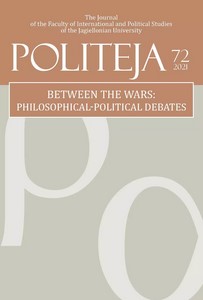THE THEOLOGY OF CARL SCHMITT
THE THEOLOGY OF CARL SCHMITT
Author(s): György GerébySubject(s): Christian Theology and Religion, History of Church(es), Political Philosophy, German Literature, Russian Literature, Politics and religion
Published by: KSIĘGARNIA AKADEMICKA Sp. z o.o.
Keywords: Carl Schmitt; Erik Peterson; katechon; Catholicism; political theology; Church; institutions; secularisation;
Summary/Abstract: The paper addresses the theology of Carl Schmitt. Schmitt often stresses his ‘natural born Catholicism.’ At the same time he also claims repeatedly not to be a theologian in the professional sense. On the other hand, his main ideas like the concept of the political (Der Begriff des Politischen), the public character of the church (Römischer Katholizimus und politische Form), and finally, his Politische Theologie II in reaction to Erik Peterson’s refutation of Politische Theologie I show that Schmitt’s ideas imply deep and problematic theological positions. The role of the katechon, or the Grand Inquisitor and his criticism of Peterson’s patristic arguments, especially the rejection of the anti-Arian reasoning of Gregory Nazianzen show a markedly unorthodox theological stance reminiscent of Charles Maurras’ political Catholicism. Schmitt’s transcends patristic orthodoxy in order to apply his historically conditioned 19th-century theology to sacralizing his idea of the political.
Journal: Politeja - Pismo Wydziału Studiów Międzynarodowych i Politycznych Uniwersytetu Jagiellońskiego
- Issue Year: 18/2021
- Issue No: 72
- Page Range: 21-49
- Page Count: 29
- Language: English

